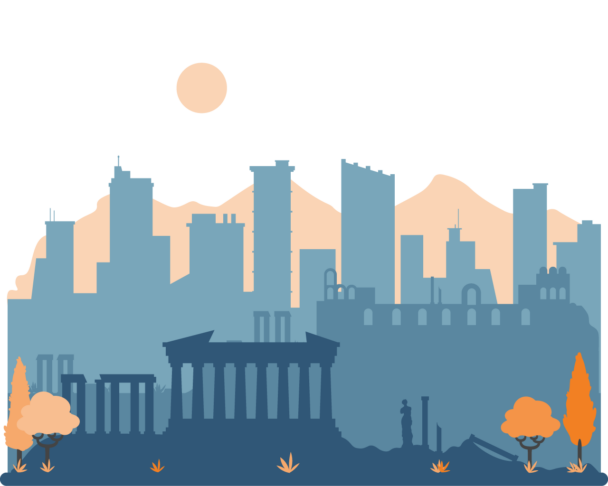Description
Basic Computer Proficiency required. Read more »
Basic computer proficiency courses are designed for individuals who have limited experience with technology. Participants will learn fundamental skills such as navigating the web, and using basic programs.
As we navigate an increasingly interconnected and global educational landscape, teachers frequently face classrooms that are diverse, multilingual, and multicultural. This complexity is further heightened as many resources are offered in English, a language some European educators may not be highly proficient in.
To meet this need, we have designed this unique program, conducted in easy-to-understand English, which will provide teachers with the tools they need to bring (digital) innovation, inclusion, and creativity into their classrooms.
The objective is to equip every participant with a mix of innovative teaching tools and strategies that can be applied in their classrooms while ensuring the learning journey itself is fun, friendly, and supportive.
The course will be as approachable and enjoyable as it is an educational philosophy and will infuse fun into the learning process to keep it light-hearted and engaging.
Participants will discover how creativity in teaching can foster curiosity and expression, transforming the classroom into a lively space of learning.
They will experiment with game-based learning, experiencing firsthand how play can turn any lesson into an enjoyable experience. They will also learn first-hand how to design an educational game from scratch.
Participants will also explore the world of digital technology, learning how to wield a simple selection of digital tools effectively and exploring the possibilities these tools bring into the teaching process.
Finally, as the course focus refers also to inclusion, the trainer will also ensure that the course itself is inclusive, offering a comfortable, supportive, and friendly atmosphere for all participants.
Understanding that diversity is a strength, they will seek to create an environment where each participant, regardless of their English proficiency level, feels valued and capable of learning and contributing.
Thus, the course is a commitment to fostering a love for learning among educators, just as they foster it among their students. Course participants will not only acquire new skills and knowledge but also create lasting memories and form international friendships.
What is included
Learning outcomes
The course will help the participants to:
- Develop and apply project-based learning strategies to enhance student engagement and understanding;
- Incorporate digital technology into teaching practices to enrich the learning experience;
- Learn how to design educational games and incorporate game-based learning elements into their classes and programs;
- Establish an inclusive and multicultural learning environment;
- Use formative assessment methods to track student progress and provide effective feedback.
Tentative schedule
Day 1 – Introduction and fundamentals
- Introduction to the course, the school, and the external week activities;
- Icebreaker activities;
- Presentations of the participants’ schools;
- Fundamentals of teaching and learning in a multicultural setting,
- Project-based learning: benefits and examples of successful implementation.
Day 2 – Creative teaching methods for inclusion and learner engagement
- Inclusive education: how to cater to students with different backgrounds and needs;
- Learning styles: The VARK model (Visual, Auditory, Reading/Writing, and Kinesthetic learners) and tools to address different styles;
- Addressing common learning difficulties. A brief introduction to conditions such as dyslexia, ADHD, and autism spectrum disorders and strategies for supporting students with these conditions in the classroom;
- Hands-on group workshop to design inclusive lesson plans and activities.
Day 3 – Incorporating digital technology into teaching
- Exploration of digital tools for teaching: Introduction to a variety of digital tools such as Google Classroom, Canva, Kahoot, Quizlet (and more), and how they can be easily integrated into teaching;
- Strategies for online engagement: Discussion on effective strategies to boost student participation and engagement with the help of online and digital tools;
- Digital literacy and safety: Brief discussion on the importance of digital literacy and internet safety for teachers and students;
- Group work on creating digital content for lesson plans.
Day 4 – Developing creativity and playfulness
- Understanding the use of games and playful activities in education: the practical application of game-based tools and principles;
- How to design games that are not very dependent on language – materials, and activities, modify classroom layout, and create inclusive classroom policies;
- Game Design for Education: a quick session to create short and engaging games to be used in a classroom setting;
- Group discussions: opportunities for participants to share their experiences, challenges, and successes related to play and games in education.
Day 5 – Lesson plan, evaluation, and feedback
- Creating a lesson plan to integrate the course results into everyday work practices;
- Introduction to formative assessment, interactive strategies for tracking student progress;
- Simulation exercises on providing constructive feedback.
Day 6 – Course closure and cultural activities
- Course evaluation: round-up of acquired competencies, feedback, and discussion;
- Awarding of the course Certificate of Attendance;
- Excursion and other external cultural activities.







